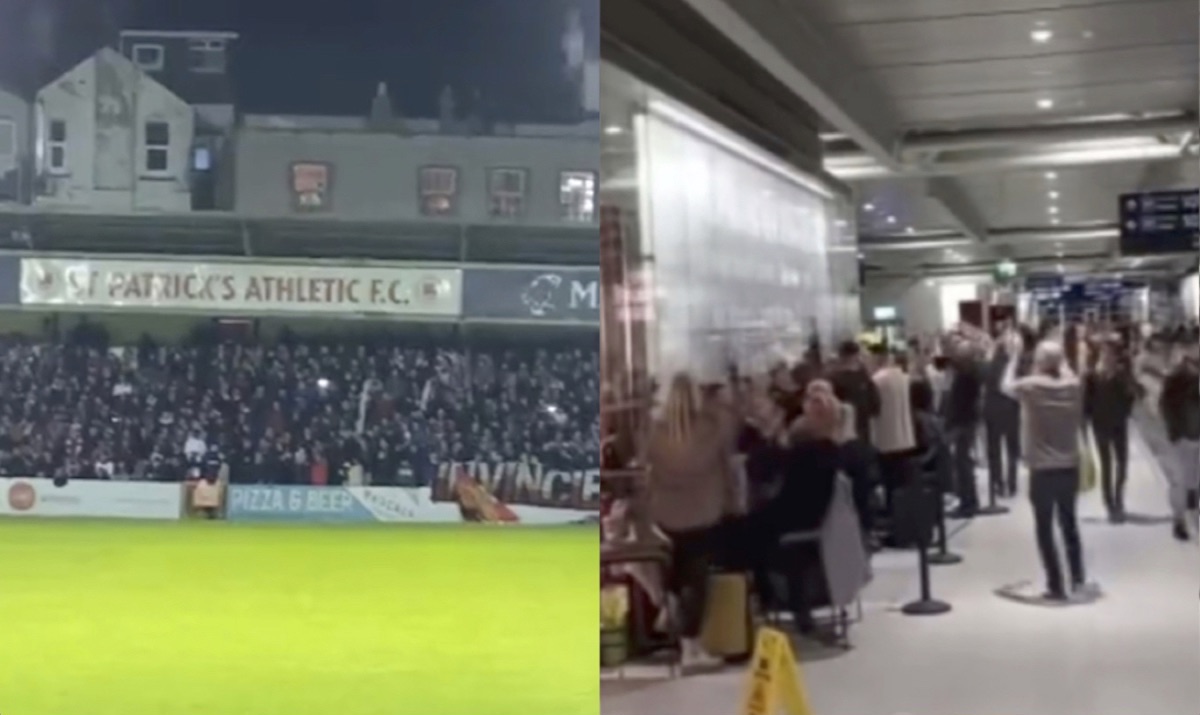
Signs that the next generation of young Irish people are ready to throw off the shackles of colonialism has deeply unnerved the pro-British establishment.
Scenes of rebel songs being defiantly sung in different locations have followed last week’s failed attempts to suppress Irish nationalism and Ireland’s pursuit of freedom.
Chants of “Up the ‘Ra” have been heard in places as diverse as Dublin airport and at a League of Ireland soccer match, prompting outrage from unionists and anti-republican elements in the 26 Counties.
The spontaneous outbreaks of singing ‘Celtic Symphony’ by the Wolfe Tones, which includes the IRA line, were triggered by the hostile treatment of the Ireland women’s national football team following their historic success in qualifying for the 2023 World Cup.
Slammed by the mainstream media in Ireland and Britain for singing the popular song during celebrations, one team member was subjected to an interview in which a Sky Sports reporter called for an apology and infuriated Irish viewers when he spoke condescendingly of people who “need educating”.
But there are clear signs a younger, more confident Ireland is now asserting itself, to the horror of those who thought republicanism had been suppressed.
Britain’s failure to honour the 1998 Good Friday Agreement, as well as increased availability of information about the conflict in Ireland, has been credited with driving support for Sinn Féin and Irish unity and Irish republicanism in general.
A hit once again in the charts in Ireland and Britain, ‘Celtic Symphony’ remains one of the most popular songs for those who want to smash the taboo around the IRA and its fight for freedom – and never before has the mindset of Ireland’s partitionists and colonialists appeared so challenged.
Former Fine Gael Justice Minister Charlie Flanagan, who infamously organised memorial events for those British forces responsible for the most extreme colonial violence of the past century, admitted the situation was “disheartening and discouraging”.
DUP leader Jeffrey Donaldson asked the Dublin government to suppress further incidents of people singing the song.
“We are asking the Irish government to use their influence in their jurisdiction to ensure that people desist from this kind of behaviour”, he said.
Irish ‘rebel’ songs have been sung both openly and clandestinely for hundreds of years. Other, less controversial songs which refer to the IRA include the Irish national anthem, ‘Amhrán na bhFiann’ (‘The Soldier’s Song’), which recalls an IRA unit during the War of Independence.
Not written as a rebel song, Brian Warfield of the Wolfe Tones wrote ‘Celtic Symphony’ in 1987 to celebrate the centenary of Glasgow Celtic Football Club, which has strong links to Ireland. It refers to ‘graffiti on the walls’ near the stadium, such as the popular IRA refrain.
Republican Sinn Féin urged people to continue singing the song.
“Irish people need no history lesson from Britain,” they said.
“British media telling an Irish person to educate themselves on Irish history whilst Britain is guilty of more violence pursuing imperialism around the world is just laughable.”
“Republican Sinn Féin encourages people to keep singing and to honor the men and women who died in the pursuit of Irish freedom through song and should not have to apologize in doing so as this is our struggle our culture and our history.”
![[Irish Republican News]](https://republican-news.org/graphics/title_gifs/rn.gif)
![[Irish Republican News]](https://republican-news.org/graphics/title_gifs/harp.gif)

